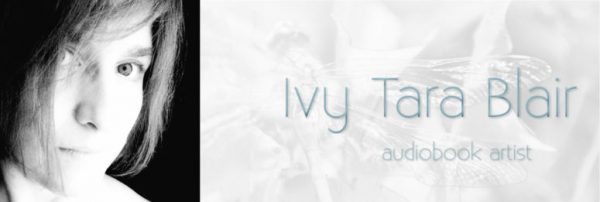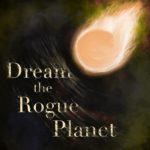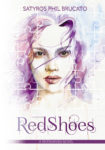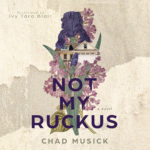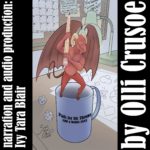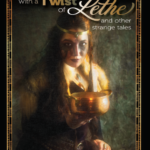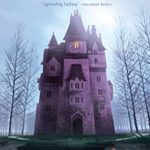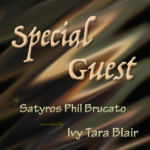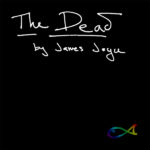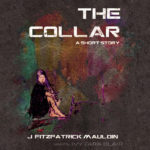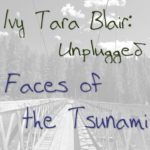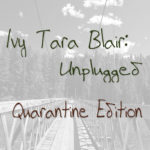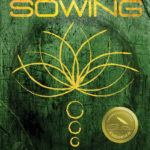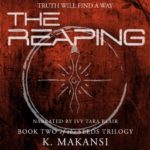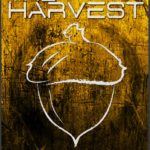Interview
selections from an interview for audiobookreviewer.com
How on earth did you get into narrating audiobooks?
I’ve been performing and reading aloud to people since I was a kid. As a child I read to my family on road trips. From six years old on, I was on stage in plays and musicals. When my children came along, I read aloud to my them for 4 or more hours per day.
A good friend of mine got a job delivering pizzas, and survived the hours spent in the car by listening to audiobooks. A new Lois McMaster Bujold book was published (A Civil Campaign) with no audiobook to accompany it, and upon learning I was reading it aloud to my kids, she asked if I’d just turn on a recorder – and send her the files. So I did.
When that book was done, she asked if I’d go back and read the entire series, as the audiobooks available for it at that time were *cough* pretty unlistenable. So I did.
Other friends requested books – so I recorded more. I got involved in local productions of spoken word with foley & soundscape. I got better and better at sound engineering, foley and sound tracks as well as voicing, pacing and all aspects of performance.
And then friends suggested, strenuously, that I go pro – so I did
Tell us a little about yourself
this is taken straight from my ‘about page’ bio
I have a background in theater and music extending back to early childhood, including live performance, effects & sound engineering; as well as producing final recordings of both live and studio productions.
I moved into audiobooks, branched out into amateur radio plays & effects/foley, and have been honing a hybrid performance & production style for professional work. I thoroughly enjoy employing character voices and effects, creating a seamless subtle soundscape which enhances but does not overshadow the performance. My use of sound is more of a sketch of character immersion than audience immersion, a supporting role rather than a distraction for the ear.
Where straight narrative is the style called for by the author, my narration is sympathetic, precise, soothing and clear. I have exceptional, crisp diction, anchored in a low contralto, slightly husky delivery that avoids the slight edginess of so many female voices.
Though new to my professional work, I have half a decade of amateur narration behind me, totaling approximately 2 million words – much of it directed by an exacting and demanding coach. The work I have put in prior to my jump to contracted work shows in the polished narration, acting, effects and production.
Voice Range:
I have a contralto voice – a lowish voice for a woman. Being a trained singer gives me tremendous range; I can drop my voice for a gravely male delivery (or alien! or fantasy creature!) or I can raise my voice many different degrees for female characters or children (or aliens! or fantasy creatures!). I can modulate my voice from husky to pure-tone to airy to gravely to breathy.
What do you do when you are not narrating?
…is there a time when I’m not narrating or editing? 
On a more serious note I also have 2 teenaged kids and a chronic illness – so I do spend a lot of time managing that.
Many audiobook narrators do other voice over work, where else could we hear your work? Do you find there to any big hurdles to jump when going from audiobooks to something else or vise versa?
Nope – audiobooks are my great love and all I record. I would consider doing voice-over work for character voices, but not commercial v.o.
Do you have the luxury of picking and choosing the projects that you work on or do you take as many as you have time for?
I choose, and choose carefully. I’m tremendously lucky to get to do that. There is such intense, exhausting focus involved in both recording and editing, enjoying the source material is what makes it worth it!
For those of us that are unfamiliar with your work. How would you describe your narration style and voice? What would the one audiobook you would suggest for people to listen to your best work?
I vary my narration style significantly from book to book. Where the character’s inner monolog or pov comes through in the narrative, I match the narration voicing to the character voice – a more smoothed out, milder version of the voice I’ve worked out for that character.
Where the character’s narrative voice isn’t threaded through the narration, I match the narrative voice to the overarching tone or theme of the book – serious, light hearted, doom & gloom, unreliable narrator/narrative etc.
In a straight-up non-character recording, my narration is sympathetic, precise, soothing and clear. I have exceptional, crisp diction, anchored in a low contralto, slightly husky delivery that avoids the slight edginess of so many female voices. (pulling a direct quote from my bio because I can’t come up with a way to say it more clearly :D)
My best work is currently represented in my audiobook for The Dead, by James Joyce. I use a wide range of character voices, both in dialog and in narrative style, and feel the overall performance exceptionally captured the spirit of the story. http://open.spotify.com/album/0B0Gwkxmunp0jny2Kzhgi8
As a narrator, do you get compensated in a set amount or do you also receive royalties from the individual sales? Do you like one more than the other? Has there ever been an per finished hour book that you wish was a royalty deal, what book? Or vise versa?
As a new narrator recording for new authors, I prefer to offer a spit deal: I accept a lower PFH dollar amount than usual, and retain indefinite 50% royalties. This makes an attractive deal for the emerging author, and protects my investment of ownership if the audiobook should spike in sales and bring us both serious money 
Recording for small/indie presses though, I won’t record without that modest PFH payment up-front, on completion of the finished recording. Small presses are unlikely to even payout the time invested to record the book, and I have to be realistic about getting minimal compensation if the book never sells.
What do you see as your greatest achievement as an audiobook narrator? What has been your most difficult moment?
Currently available work? The Dead, for sure. It was a project accomplished with my director as part of the Tiny Guppy Mystery collective and took 4 months to polish up and make shine.
My most difficult moment to date? Being sent back to the drawing board on a character or narration is incredibly discouraging. I suffer complete ‘takes the wind out of my sails’ effect when I realize or my director realizes that an entire performance concept has to be trashed and re-imagined and THEN re-performed – which always involves re-takes and multiple edits. On a project like The Dead, the time invested per-finished-hour can be more than 15:1.
Do you have a list of your own favorite narrators, who inspires you? Do you have a list of favorite audiobook that you have listened to?
Ha – alas, I can no longer listen to audiobooks! Heck, I can barely listen to actors in movies 
In the past, in hours spent listening to audiobooks with my kids, I had 2 favorite audiobooks though!
The Miserable Mill, narrated by author Lemony Snickett
Samuel Blink and the Forbidden Forest, narrated by Simon Vance
Both narrators struck me, and struck me hard, with their simultaneous ability to both narrate in a meta-level – humorous notes of the narrator enjoying the book – and sink into the text without self consciousness – unapologetically portraying the intense emotion of narrative and characters.
I certainly seek to give this same multi-level performance in my own work.
What is your favorite thing to do? Pastime, hobby, obsession, etc.
Recording 
Photography on and off. Photography is just part of my life, but I also occasionally do a stretch of professional work and enjoy post production tremendously.
If you had to choose someone to rescue you from the jaws of certain death would it be a superhero, supernatural creature, or a space alien?
Space alien, for sure 
If everyone came with warning labels, what would yours say?
Warning: Verbosity and Meta ahead!
Care to share an awkward fanboy moment, either one where someone was gushing over your narration/acting…..or one where you were gushing over another narrator/actor’s work?
fan: Ivy *foot stamp* You have ruined me for all other audiobooks! No one breathes! You can’t hear the soundspace! Other books all sound airless!
me: …..ummmm
what could I say? ….um, sorry? thank you? I’m only likely to ruin them more in the future?
So of course I said, “Gosh that’s such a sweet compliment, thank you!” and felt incredibly awkward about it!
What is the first book you remember reading on your own? What do you remember most about the experience?
I don’t remember the first book ever – but I remember the first adult book I read: Watership Down. What made the biggest impression was the length – I was a really fast reader and kids books whipped by so fast they felt like a tease. But here! At last! Was a book that would take a couple of days to get through! TREASURE!
And of course Watership Down is a treasure
You have to run an obstacle course. Who do you invite along (living or dead, real or fictional)? Will there be a tasty libation involved?
Miles Vorkosigan! And libations (of course) would be Maple mead!
Studio Time
Do you ever get specific notes or ideas from the writer about how something should be read? What is a helpful note, and what is, shall we say, less helpful?
I’m very willing to work with an author initially to nail down overall narrative tone and some specifics of character voice ‘This guy is serious, this girl is whip smart’ ‘He has X accent’ But when it comes to further specific voicing development I prefer to let the voices tell me how to read them – and unless an author really cannot stand a voicing I develop, I go my own direction with them.
My favorite direction has to do with the psychology of the characters or the scene. “The text reads like an argument about tomatoes – the subtext is a lover’s quarrel.” I love direction like that!
My least favorite notes are when an author tries to direct each. line. of. the. page. for cadence. for intonation. for pace. as if they were directing a play and I was a clueless actor. Without fail, a story directed this way has all the life sucked out of it. You hired me because you believe I’m good – let me do my job! The way I read won’t be exactly what you hear in your head, that’s just reality. If you want a cohesive performance that crackles with energy, you have to let it come out of my mouth organically. (not to mention trying to record a 100k word book this way would take a year!)
Do you have an initial process or routine by which you get to know the book you’re going to be reading? Do you mark them up, for example?
I do a silent read that is simply to enjoy the book and get to know the story and the narrative tone. Then I do a cold recording without planning and let my instincts do their thing. I’ve done enough recording, with enough rigorous performance and editing critique, that my organic first take is often the final. If I run into problems with rhythm or voicing, I either loop in specific sections or give the whole chapter another run.
The only time I go to 100% mark-up of the page is if I’m working in an unfamiliar accent and need phonetics spelled out so that I can focus on personality, rather than remembering accent cues.
As I get better and have the chance to tackle more and more sophisticated prose, I’m sure I’ll develop new strategies to give the performance my best.
How do you flesh out how a specific character will sound?
Most of the time, I let the pacing of the dialog inform the character voice – and that works, because the author had a voice in mind when they wrote, and it comes through in the text. If I’m at sea on a character voice, I’ll impose a specific trait and see if that can sharpen it up – nasal, brash, soft, regional accent, higher, lower, huskier, purer. If I simply have a large cast and must have clear voice differentiation because the surrounding narrative blocking tends not to give it to me, I’ll take either organically developed traits or my assigned traits and exaggerate them more than I would otherwise.
The level of character voice differentiation I go to is dictated by how much heavy character work the text will bear. Some books scream for complete immersion, some books ask to be read like a fire-side story telling – reading one like the other can be a disaster of melodrama or under-serving the text, depending
Is your studio in your home? What are the advantages and disadvantages of this? Do you have something that you would consider unique in your setup? What is it?
Yup! Studio is a WhisperRoom right in my livingroom.
Advantages – I can still record even if my energy is low; I can make corrections on a moment’s notice; I can record when inspiration strikes; I can record in the middle of the night
Disadvantages – IT IS ALWAYS LURKING THERE. REMINDING ME I HAVE WORK TO DO. Also the cat believes it is The World’s Best Scratching Post – I have to go peel him off the outside on a regular basis in order to keep recording
Unique? I have really specialized microphones – Oktavamod mics modded to emulate the Newmann U87 classic mic at only a fraction of the cost. They have a fantastic quality of sound – warm, pure, crisp exacting detail without a trace of harshness, and incredibly sympathetic. They also have just about a zero noise floor, which is really important for narrative work, since there is nothing to disguise signal noise in the silence between phrases.
What is the atmosphere like in your studio when you record. What’s it like, and are things very serious or not very serious?
I have the interior of the studio decorated with christmas lights – it’s warm and cheery and dim. I’m a bit of a ham in front of the mic – I curse at mistakes, exhort myself to pay flippin’ attention dammit!, make funny noises and exaggerate sounds to entertain myself before going back to a serious take.
On the flip side if I’m really into the text you can hear a pin drop between phrases, every breath is carefully calculated, and I can go for pages without a re-take.
Pretty much it’s one or the other in there
How long do you record at a time, on average? What is it about a book that will shorten or lengthen this?
When I’m in good vocal shape, I’ll record 2-3 hours in a day. Since this means 4-6 hours of editing, I don’t record every day – that’s just the reality of chronic fatigue syndrome.
If I’m fed up with editing, I’ll go record a podcast for comic relief
A book with dense prose will drastically increase recording time – a lot more re-takes and careful sculpting of the performance will be required. The Dead is a prime example of this – Joyce’s prose is both dense and has an arhythmic quality that doesn’t lend itself to being read aloud. Added to that, the primary narrator is an unreliable one, so careful attention has to be paid to depicting both this deceptive surface reading and the deeper meta commentary of the story on that reading.
What is your favorite genre to narrate? Why?
For contract work – young adult speculative fiction because I enjoy reading it myself, to start with 
For Tiny Guppy Mystery – anything with dense, multi-layered prose and character work. I have a director who excels at helping me bring the most to stories like that, and I love the challenge.
If I had to do only one or the other, I’d be pretty bored
What has been your favorite character? What character has given you the most grief?
In The Sowing, I really enjoyed voicing the AI voice, Demeter. Melodic, smooth, slightly arhythmic – and tinged with humor
Also in The Sowing, the current ‘gave me grief’ voice was Chan Yu. Voicing a character whose main attribute is his blankness…but who has an underlying presence of bedrock authority? I was left going…haaalp I need something new here.
I ended up pulling out a technical trick to load his dialog with the subliminal sense of blankness/distance: I read his lines with the flat authority called for in the text, but backed away from the microphone to change the room-sound around his lines of dialog to literal ‘distance’ sound. Then I balanced their volume back to baseline in post production. The end result was exactly what I wanted – you don’t think ‘distant mic sound!’ when you hear his lines, but you are disturbed by something ‘distant’ about them.
How do you stop yourself from laughing or crying at some of the things authors write?
I don’t
Misc
I have heard that many in the industry dislike the term narrator. What do you prefer and why?
The problem with ‘narrator’ is that implies that I’m just mouthing the author’s words rather than creating talented, skilled work of performance that I alone have ownership of.
On my website I designate myself ‘audiobook artist,’ to linguistically poke at this careless tendency to see narrators as ‘mere readers’
How do you view audiobook narration/production: Art or Science?
Both.
A talent or intuition for performance isn’t something you can do without, but that intuition doesn’t spring fully formed from happy instinct fairies either 
Some specific acting chops are as much skill as talent – from aspects of artifice for how to use one’s voice to evoke an emotion (cracking your voice to indicate grief, for example), to learning to use pacing and silence to let emotion or comprehension breathe. Other aspects of acting border on magic – why does one performance move you to tears and another leave you cold? Some narrators make you believe 100% that they are living the book…other’s just don’t.
Production meshes art and science as well. Utter precision of editing is required in a technical sense: you cannot let a splice contain a pop, for example; you must finesse volume, stereo field, limiter effects etc. so that they are invisible in the end product (failure is disaster, success goes unpraised :P) Artistic choices are just as necessary – such as selecting one take over another; editing in a pause; choosing to remove an inhale; slowing a phrase down one word at a time; or going all out and adding effects.
Sculpting effects, foley & soundscaping are an artform in their own right – I have never respected movie foley more than I did after producing some fully sound-scaped works!
Do you have a philosophy of how to create the perfect audiobook experience?
Every damn book and every damn performance is unique! If I limit myself to one word though, I’d say ‘space’. Give the listener space, give the phrase space, give the paragraph space, give the chapter end space.
Utilize silence as performance.
Do you have a preference for reading fiction or nonfiction for pleasure? And is what you read for pleasure what you’d prefer to read for audiobooks?
Fiction. And give me scifi for both of them!
Do you have any advice for other aspiring narrators?
Editing is 50% of your performance – treat it as such.
Nothing can replace sheer time in front of the mic, or time in front of your editing suite. Record all the things!
Trust your critical assessment – develop your own judgement by using your judgement.
What has been your favorite project and why?
Some amateur fully soundscaped performances I’ve recorded, just for my own satisfaction and the satisfaction of the friend for whom the work was intended. There is nothing like rendering the best performance you can, and then laying in detailed foley down to the tenth of a second precision to surprise and delight the listener.
Do you believe that listening to an audiobook should be considered reading? Why or why not?
Yes, absolutely. The skillset is different, but the process of imagination, language comprehension and synthesis, grasp of story, character and literary meta analysis are just as exacting and sophisticated.
Is someone really going to claim that audiobooks for blind readers or dyslexic readers are ‘not reading’ ?? Preposterous.
Should everyone who can, learn the process of synthesis that reading text off the page requires? Yes – it’s a valuable and fulfilling skill, worthy in its own right and necessary in a lot of walks of life.
Should people for whom visual reading is a misery or impossible be penalized for needing or enjoying a different way of taking in books? Of course not.
Are you working on any special projects?
Oh good lord 
Contract audiobooks form less than half of the time I spend in front of the microphone.
Have you ever gotten a poor review on your narration? What do you do with such reviews?
I don’t read my reviews! See above re: crippling comparison despair! I have to trust my own judgement over anyone else’s and I cannot do this if I’m traumatized by being trashed in a cranky review
On occasion I have had email exchanges with fans in which informed helpful critique was enjoyed as part of the conversation. Most of the time, I have good reasons for performing or editing the way I do – when a listener doesn’t like what they hear because it’s not to their taste, I accept that and move on. When a listener doesn’t like what they hear because I failed to create a recording that put across my intention – then I work to further refine the techniques of performance and editing necessary to fix things next time.
How do you feel about authors that choose to narrate their own audiobooks? Any advice to them?
More power to ya! No one knows your intent better than you
Advice on recording:
1. Slow down. Slow down more. Stillll more. You’ll still probably need to slow down after that.
2. That said, don’t over-think your delivery – read like you’re speaking, not like you’re performing. If you’re not a performer, don’t try to suddenly invent yourself as one 
3. Audacity lets you edit about like a word processor – highlight, cut, paste. Don’t be afraid of the short learning curve – it’s not too scary. Editing is 50% of your final work – treat it as such.
Advice on unexpected reasons why you might choose a narrator anyway:
1. a good narrator will discover intent you didn’t know you had, and this can be super fun.
2. a good narrator can let you enjoy your work as if someone else wrote it, with all the surprise and delight that implies – and this can be super fun, too!
This is for the question you wish I would have asked but didn’t.
hmmm. How about: How would you describe your production style?
While I would produce a 100% conventional audiobook recording for most authors, I have been refining a hybrid production style for several years that I’m continuing to explore with Tiny Guppy Mystery.
‘Hybrid’ in this case refers to two separate aspects.
1. A very sparse and targeted use of sound effects and occasional phrases of music – enough to suggest the environment of the character, not enough to create immersion in that environment for the reader. This distinction is important for the sake of endurance 
2. My performance style is also hybrid, in its way. I don’t read, I don’t narrate, I don’t sit next to the fire place and perform (well, for some books I do just that – it’s fun!), I don’t become a full-on cast of dialog characters – rather, I inhabit. I want to equally evoke: the characters; the narrative voice; the meta awareness of the scope of the book; what the characters know and don’t know; what the listener knows and doesn’t know….it’s a kind of performance esthetic that I don’t hit every time – but when I do hit it I know it. The Dead aimed to show-case that mode of performance
Some narrators like to do giveaways with thier interview. If you do too, let me know what and how many.
I have 24 Audible download keys! I can throw in a Carl Castle-esque answering machine recording for someone who gives me fab publicity or something!
